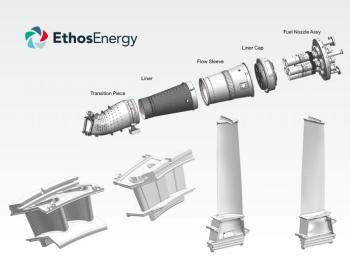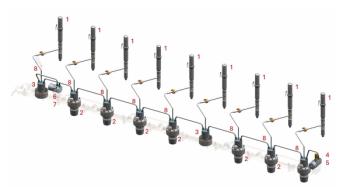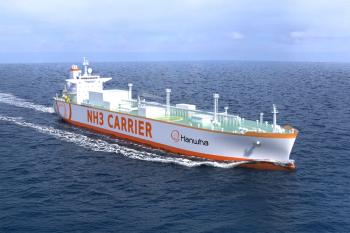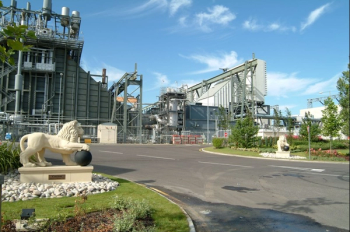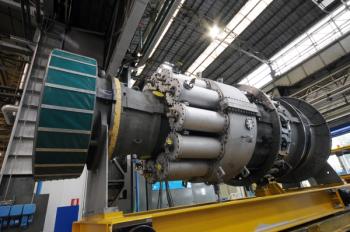
MAN BASF Huge Heat Pump
Expected reduction of up to 390,000 metric tons of CO2 annually
BASF and MAN Energy Solutions are conducting a feasibility study for the construction of an industrial-scale heat pump at the BASF site in Ludwigshafen, Germany, to be completed by the end of 2022. The feasibility study is looking at the economic viability, efficiency and competitiveness of the technology. The project’s goal is greenhouse gas reductions, establishing the use of low-CO2 technologies in chemical production, and reducing the site’s natural gas consumption.
The new pump, when finished, will produce up to 150 metric tons of steam per hour, equivalent to a thermal output of 120 MW. Calculated CO2 emission reduction at the site is 390,000 metric tons yearly. This has the added benefit of improving water cooling system efficiency and lessening climate and weather invariability on the system.
Dr. Martin Brudermüller, Chairman of the Board of Executive Directors of BASF SE says, “In the medium term, we want to reduce our CO2 emissions by 25% by 2030.”
Ludwigshafen requires 20 million metric tons of steam every year. The plants use much of it as process steam in production; for example, to dry products, heat up reactors, or for distilling. Heat steam recovery from low-CO2 processing currently makes up half of their supply. The remaining steam demand, approximately 50%, is met by gas and steam power plants.
Newsletter
Power your knowledge with the latest in turbine technology, engineering advances, and energy solutions—subscribe to Turbomachinery International today.

